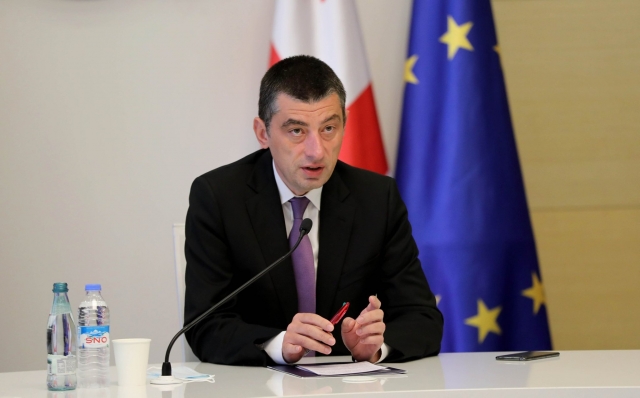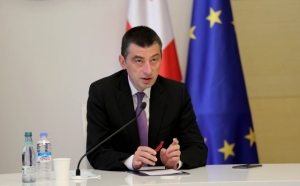PM: We Have No Grounds or Desire to Stop Economy, Education & Political Processes
"We continue to operate the economy, we continue to operate the education process, the political process is underway; correspondingly, we have no basis or desire to restrict this today," Georgian Prime Minister Giorgi Gakharia stated during the session of the Interagency Coordination Council.
The head of the government noted that the responsibilities of all relevant services must be increased so that the processes do not become difficult to manage.
"We have taken the steps that we have taken absolutely deliberately. We continue to operate the economy, we continue to operate the education process, the political process is underway; correspondingly, we have no basis or desire to restrict this today. On the other hand, however, this means that the responsibilities of all relevant services must be unequivocally increased, otherwise all of this will become extremely difficult to manage," he stated.
The Prime Minister stated that although no problems have arisen as a result of the increase in the number of cases, this does not mean that the resources of the healthcare system are unlimited.
He added that establishments must demonstrate responsibility, carry out thermal screening, provide disinfectants, and manage their employees so that the medics can respond quickly in case of necessity.
"While we have no problems managing the increased number [of infections] and the rapid spread [of the virus] today, this does not mean that the resources of the healthcare system are unlimited. We need to explain to everyone that any resources – first and foremost, resources of the healthcare system – have limitations, which need to be taken into consideration. In order to avoid restrictions we must follow the basic requirements: face masks, distancing, norms of hygiene, and caring for the elderly, especially in Adjara. We are not telling anyone to stay at home but now would be the right time to tell elderly citizens to stay at home.
"Establishments must all have their own responsibilities; they must carry out thermal screening, provide disinfectants, and manage their employees so that if and when there is a need to raise the alarm, the medics can respond quickly. The obligations of the state are, first and foremost, rapid testing and detection, then the fast triage system of 112 and the fever centers, then the new approach of the clinical group (which entails the management of mild and asymptomatic cases with the help of 112, telemedicine, and the primary healthcare sector), then quarantine and, of course, the admission of serious cases to hospital," Giorgi Gakharia stated.












